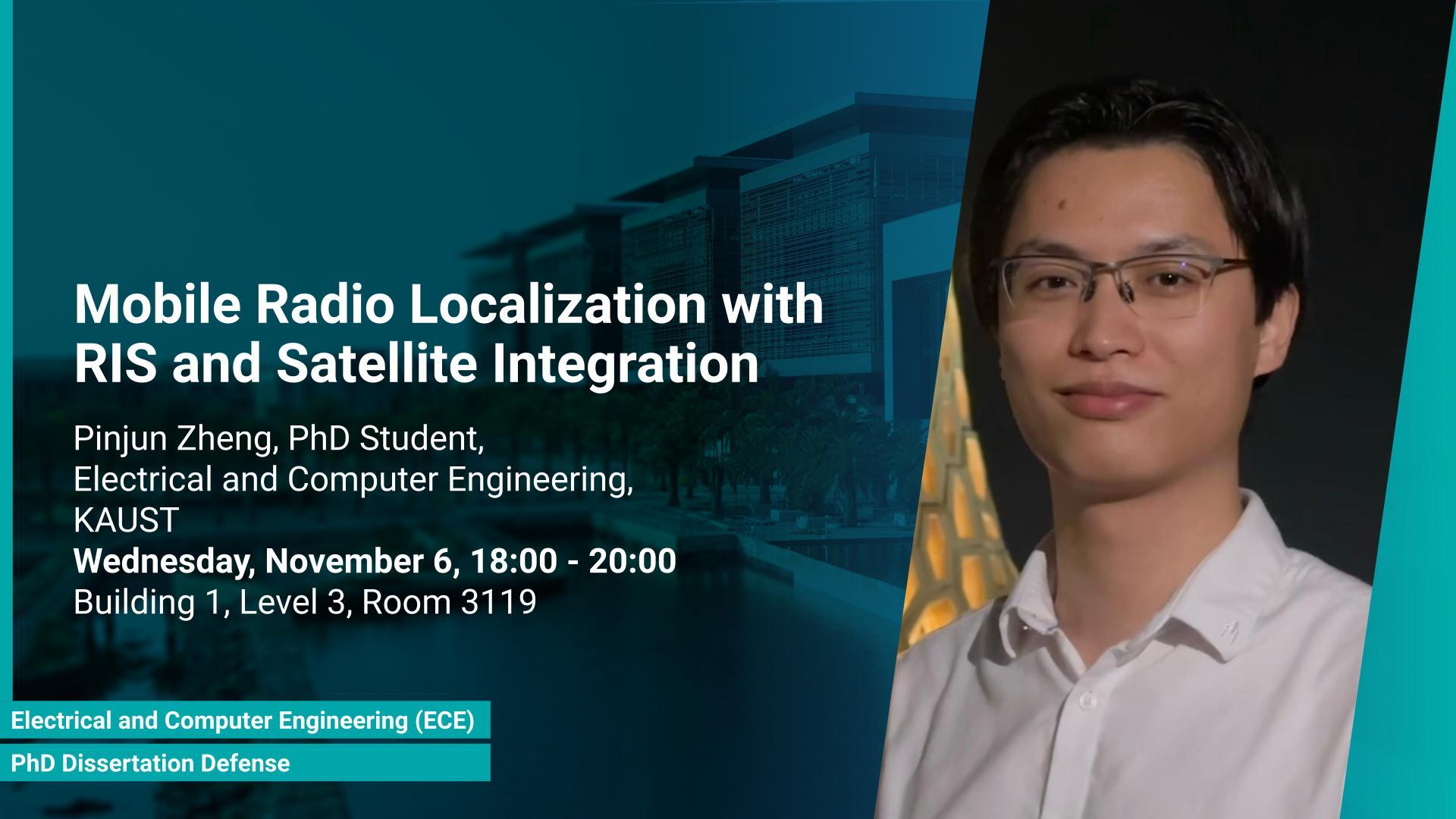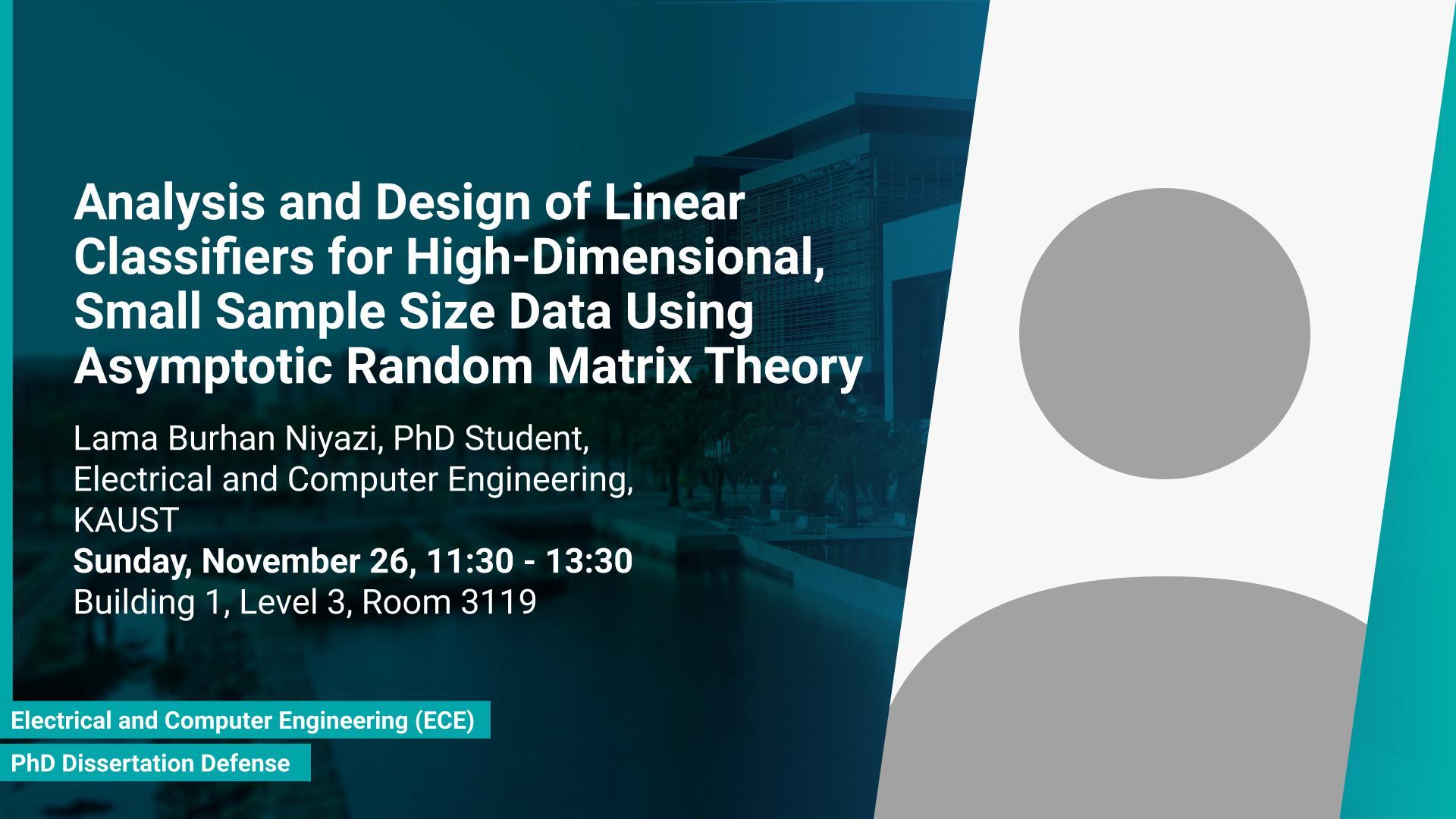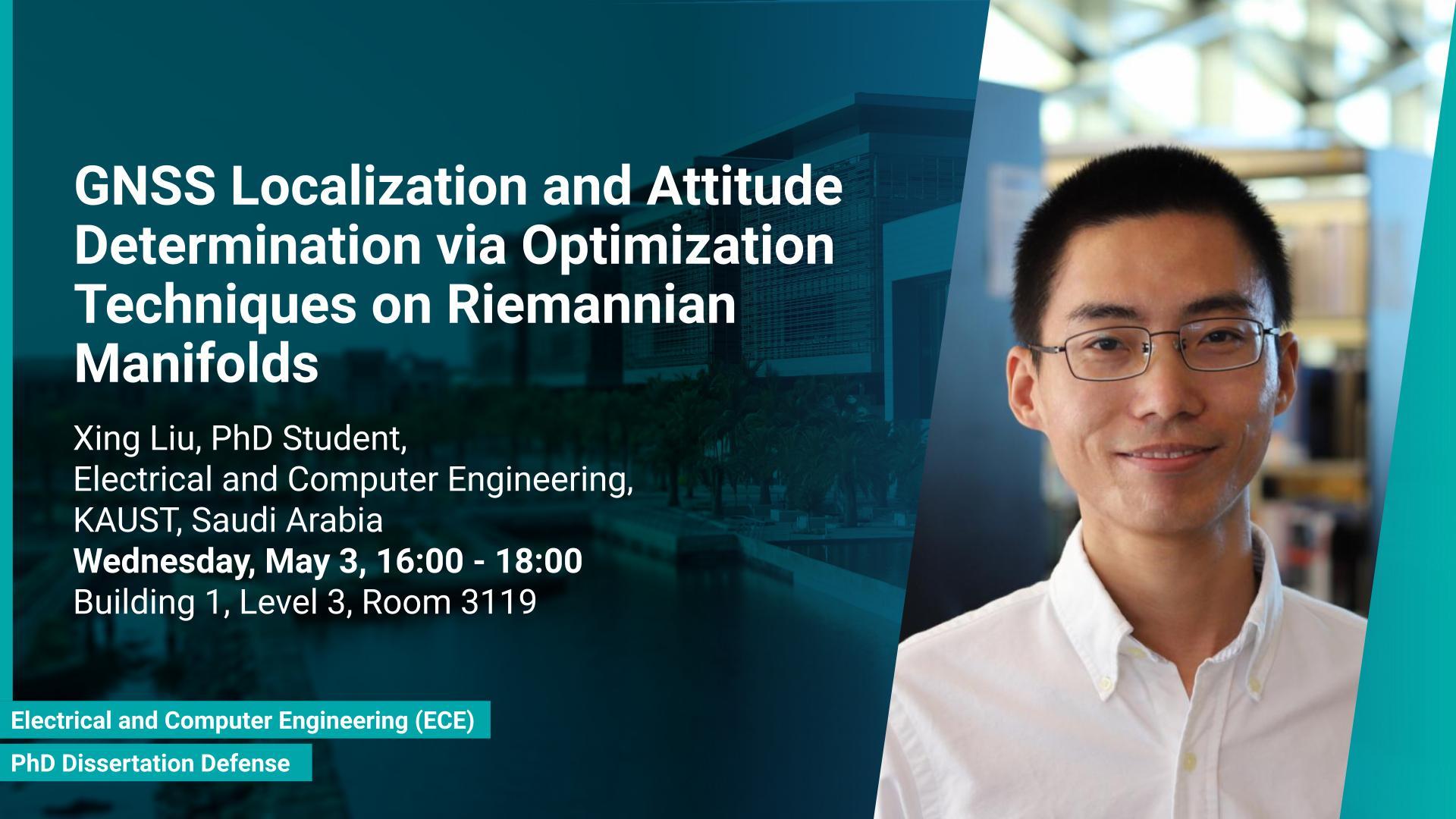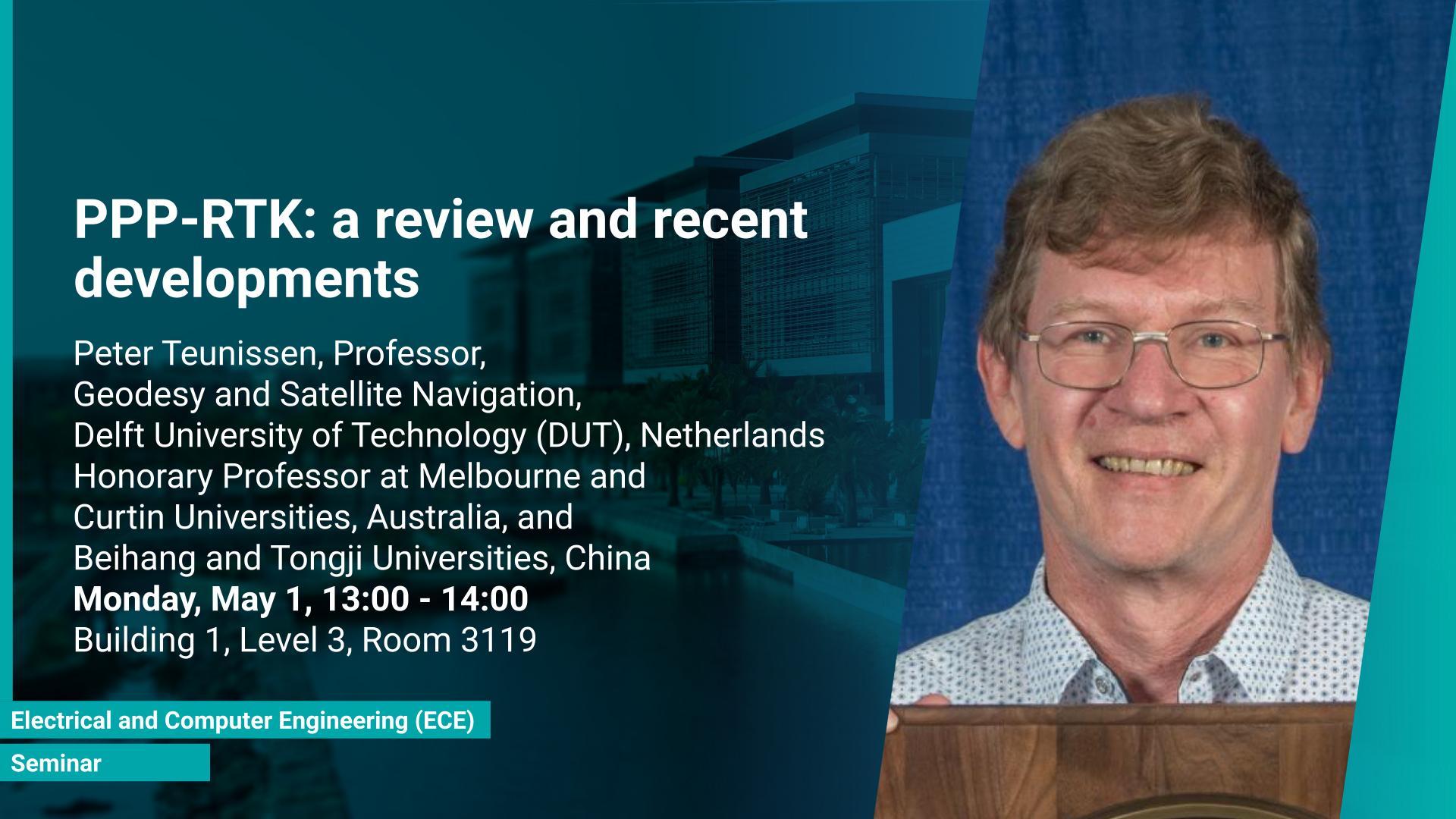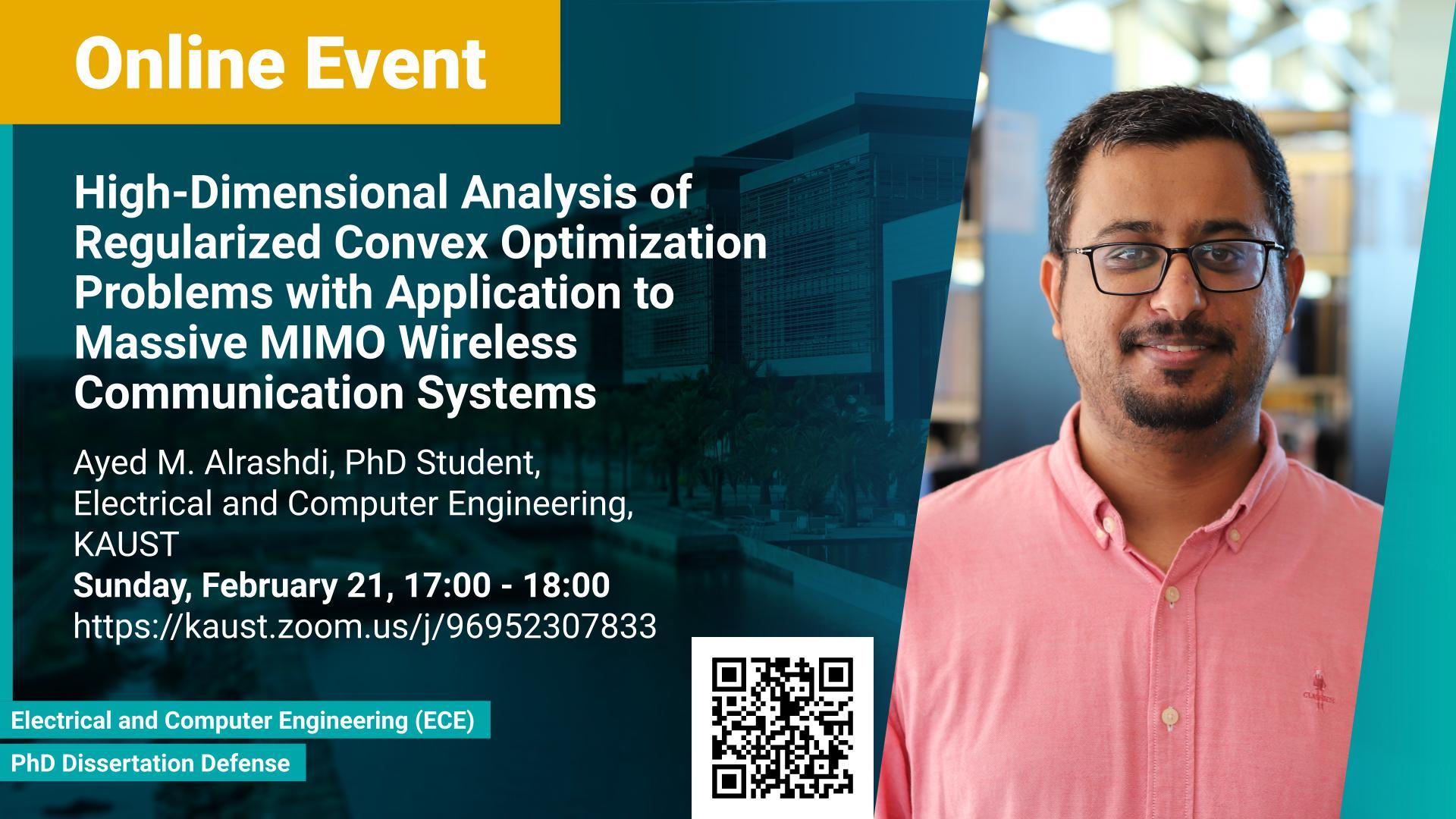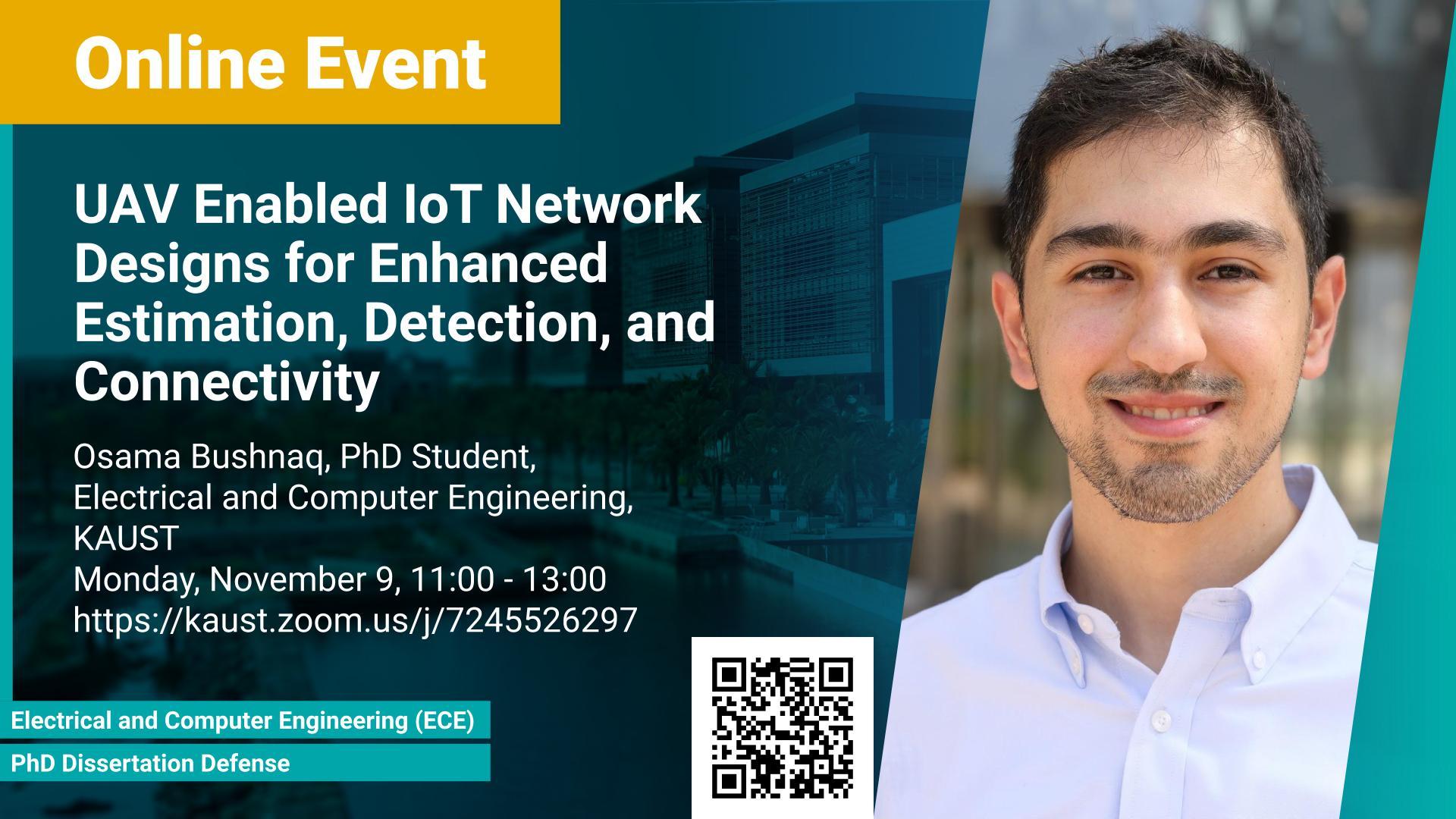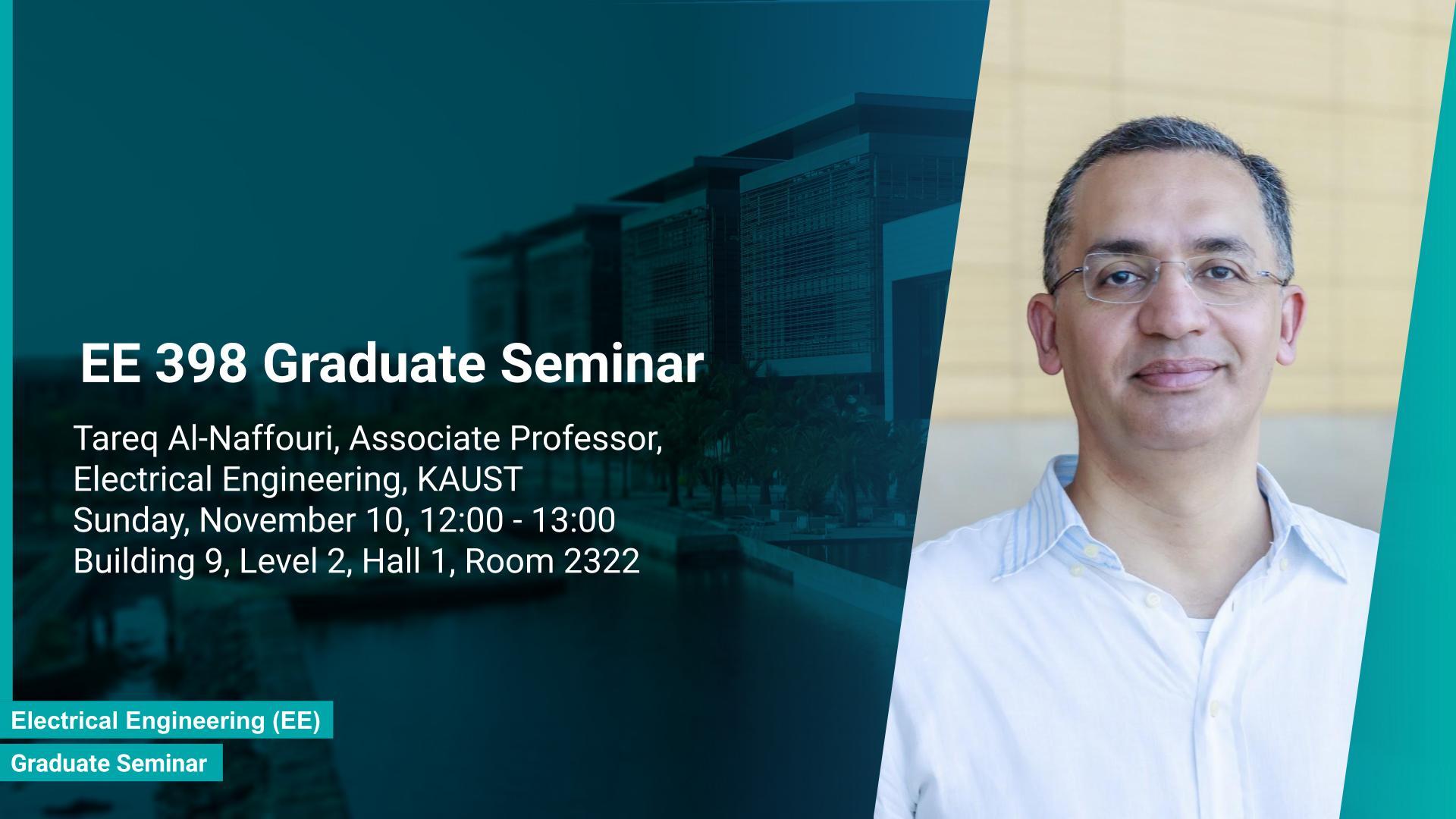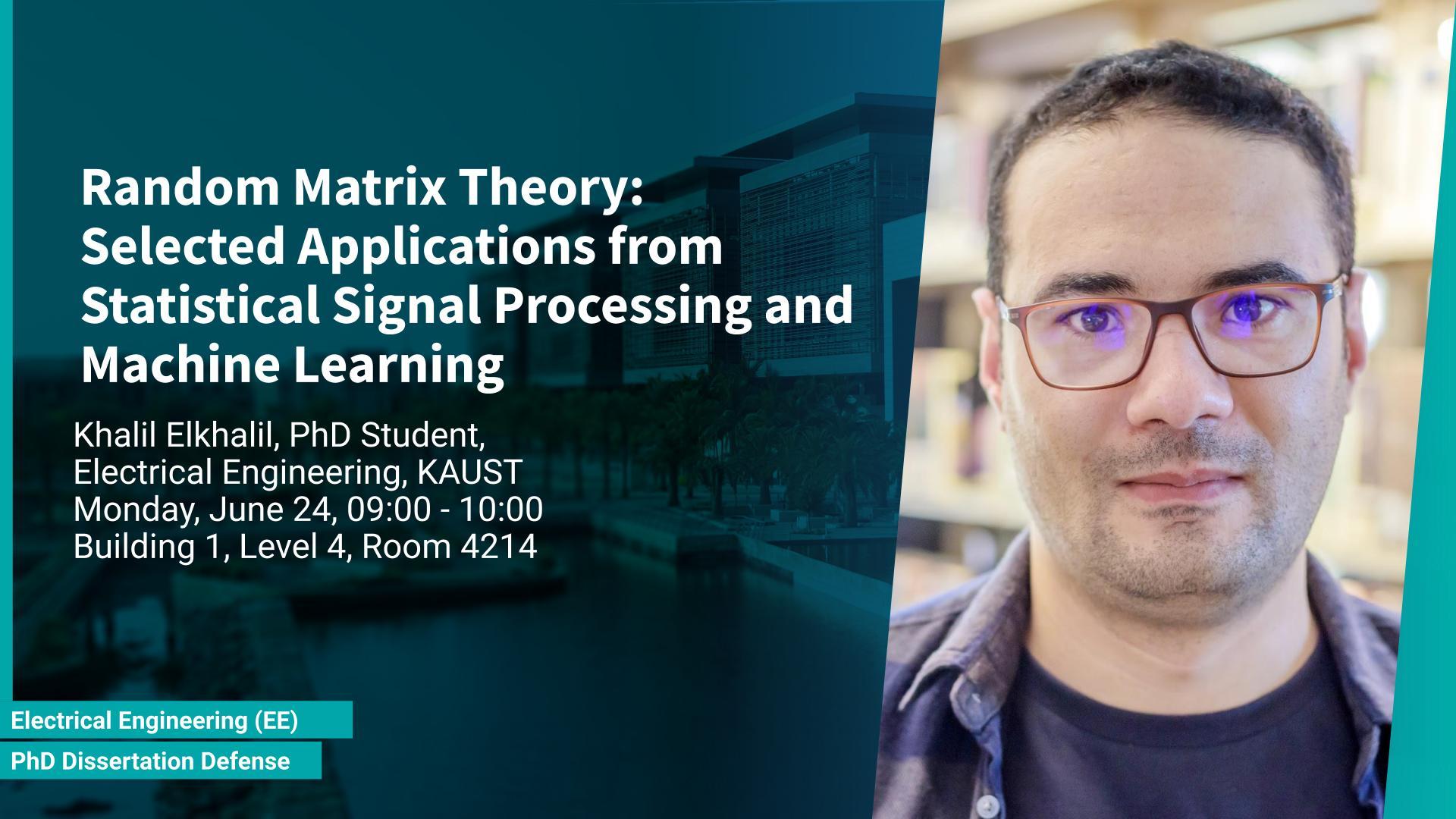PhD Student,
Electrical and Computer Engineering
Wednesday, November 06, 2024, 18:00
- 20:00
Building 1, Level 3, Room 3119
Contact Person
The rapid development of wireless systems presents unprecedented challenges and opportunities for mobile radio localization. On the one hand, the demand for precise and reliable localization capabilities in 5G/6G systems is growing.
